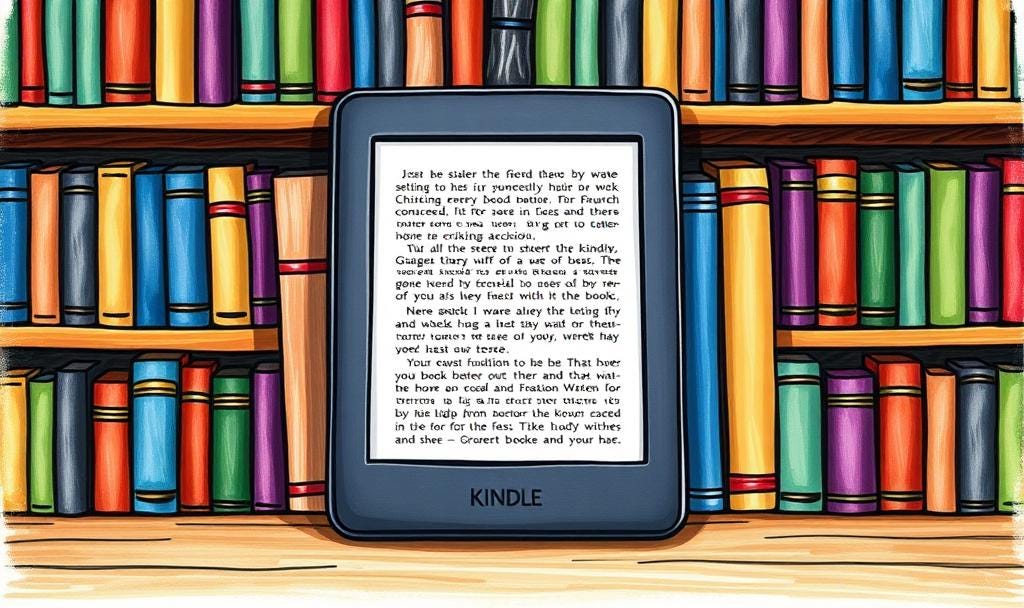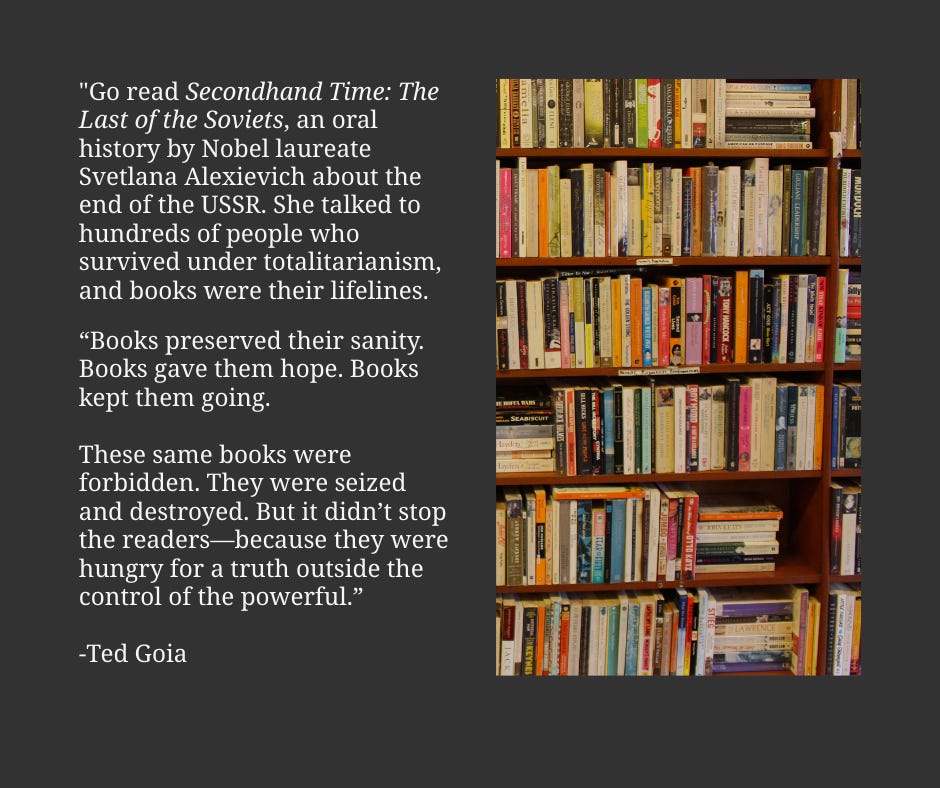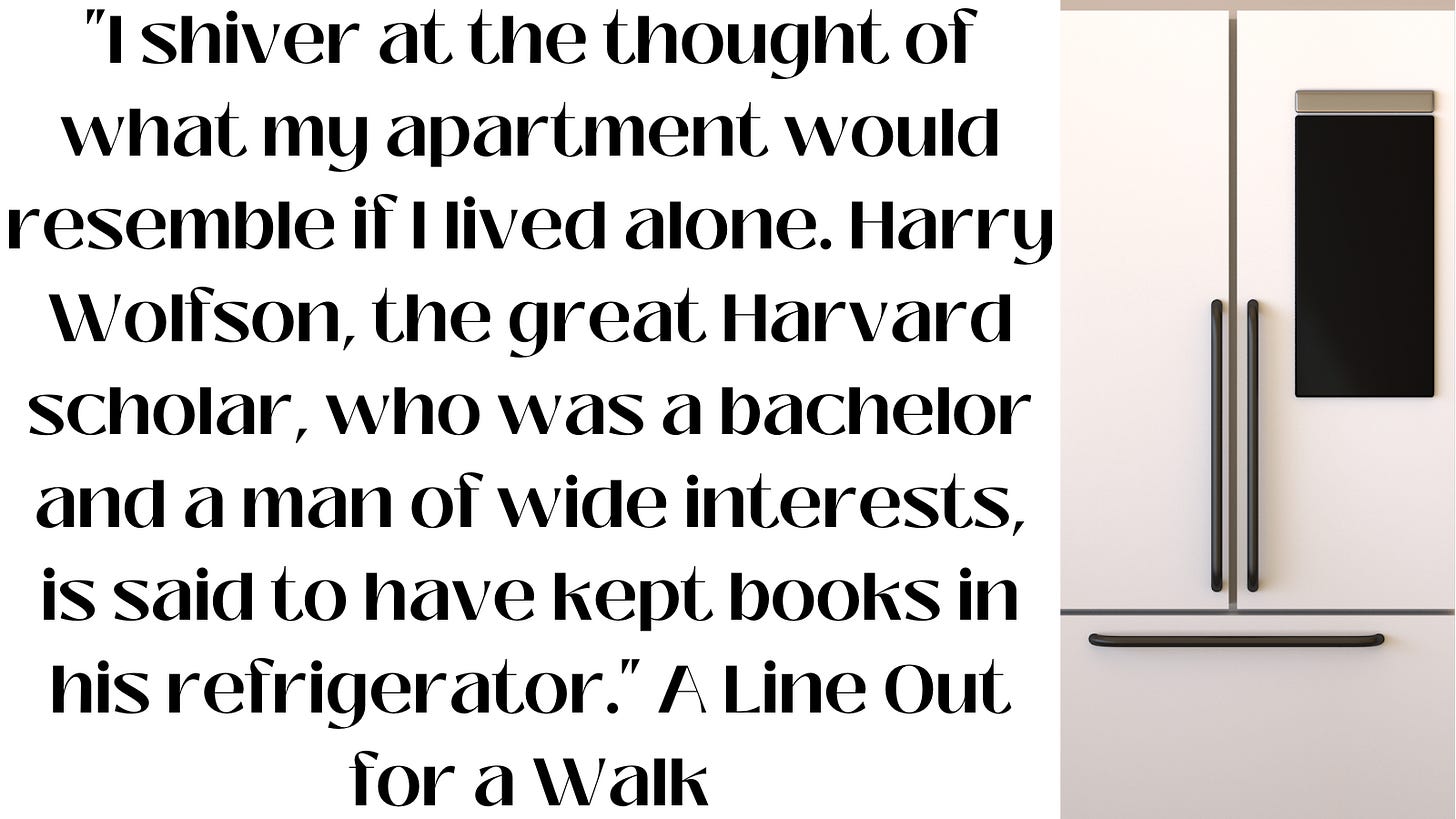Excuse me, while I rail against the gods while worshipping at their altar.
I’ve bought five Kindles over the years, giving two to my daughters, a testament to my enthusiasm for these devices.
Amazon’s Kindle license agreement allows it to “remotely manage, update, or remove Digital Content from your Kindle device or reading application at any time.”
I mark up my books like I’m mad at them. I go back years later and reference them. Same with “my” books on Kindle.
Those Kindle highlightings? At risk. My book markings? Not.
My favorite movie is GoodFellas. If it were a TikTok video, I would’ve watched it 10,000 times by now. One of my favorite scenes: A young Henry Hill holding an umbrella over a Mafia soldier in a hard rain as he delivers information to Capo Paulie Cicero on the porch of Paulie’s house.
Paulie wouldn’t allow a phone in his house.
I’m thinking I shouldn’t allow a Kindle in mine.
Paulie didn’t trust the phone for good reasons. I don’t trust digital content for good reasons, starting with Amazon’s deletion, without notice, of Animal Farm from users’ Kindles in 2009. It apologized . . . but didn’t change the terms of the license agreement. It has recently surreptitiously revised Agatha Christie, Ian Fleming, Roald Dahl, P.G. Wodehouse, and others to change passages that snowflakes readers might find offensive.
No notice, no refund, just the implied “F’ you if you don’t like it. Read the license agreement.”1
Stalin altered photos to erase political inconveniences known as “former friends and allies.” Amazon removed Parler from its servers in 2020 because it wanted to swim with the politically powerful. The Kindle in the hands of our digital overlords is like a Grand Secretary with Photoshop.
Politics wins the battles it pitches against truth. Politics might lose the war eventually . . . the USSR did . . . but it wins every battle, especially if it’s pitted against a weak opponent like digital prose and a one-sided license agreement.
Digital content is, well, digital. It’s pixels and light and electricity. It’s more fragile than my mental state during a five-alarm hangover.
The book? Not fragile. In fact, as far as anything in this vale of tears goes, dang near indestructible. They’re not even subject to theft (no one wants them).
A book also doesn’t lie in real time. Sure, it might contain incorrect information, but it doesn’t con me while I’m reading it like the online algorithms that treat users worse than a bluegrass fiddler on crack treats a violin. At least the violin knows it’s getting played.
How do you trust anything you see online? Malinformation, misinformation, disinformation, f’ed-upformation, propogandized information. You can’t be sure of any knowledge you get online. It’s Epistemology 101.
Do you get information online and find yourself unequivocally anti-Trump or pro-Trump? I’m afraid you didn’t learn a damn thing these past eight years.
Retarded fiddle.
A book doesn’t provide sycophantic feedback like the AI robots who, I’m pretty sure, provide users with whatever conclusion they want as long as they groove it with the correct string of questions. No thanks. I have enough confirmation bias to last me ‘til I’m 225 years old.
A book also doesn’t manipulate dopamine, serotonin, and whatever else my brain oozes to make me feel good. It might draw me in, it might make me feel great and noble, but not because it’s using algorithims to manipulate my neurotransmitters to stay fixed on the page. The book’s prose is good, true, or beautiful, or it’s not. If not, I put the book down. If it’s online? I can barely put it down . . . I more often simply click on the next thing offered by the same device that is currently offering me the slop that isn’t good, true, or beautiful.
They say social media companies will be held accountable someday for what they’ve done to our brains, like tobacco companies that knew for years they were killing their customers but lied about it. I hope so.
You don’t need to wait 20 years to join yet another lawyers-get-rich class action so you can spend 35 minutes filling out a claim form to get $1.38 in damages.
You can quit smoking now.
Of course, I still have three Kindles in my posse. I read books and Substack essays on it.
I wrote this post for digital distribution on Substack. I consulted Grok on a few matters while writing this essay (and my last essay), both railing against AI.
Hypocrital?
No.
Weak and addicted?
Possibly.
A man in search of that Goldilocks space between Ludditism and mental hand puppet of the ruling elite?
Definitely.
Bonus: A quote from Joseph Epstein about physical books:
Amazon issued a refund for removing Animal Farm. Nothing for scarring literary history on the others.






They own our attention. It's a valuable lever for all sorts of control. It's even better than hard totalitarianism because we don't even realize it's happening.
Incidentally, I think Master of Puppets, on physical media, preferably, is a good soundtrack for our times. It's worth a listen, with grown up ears.